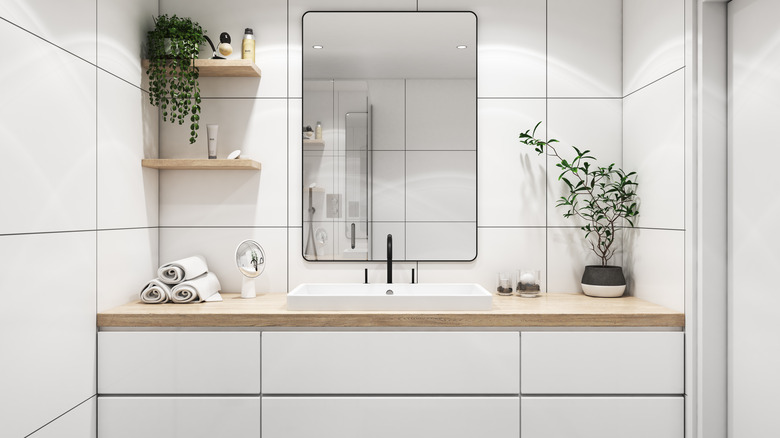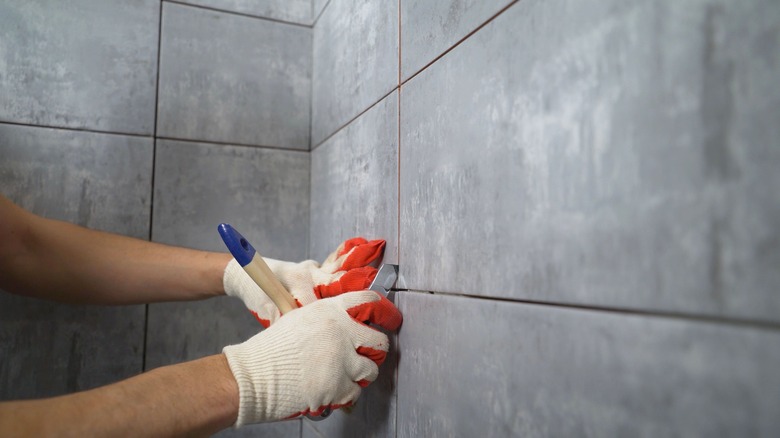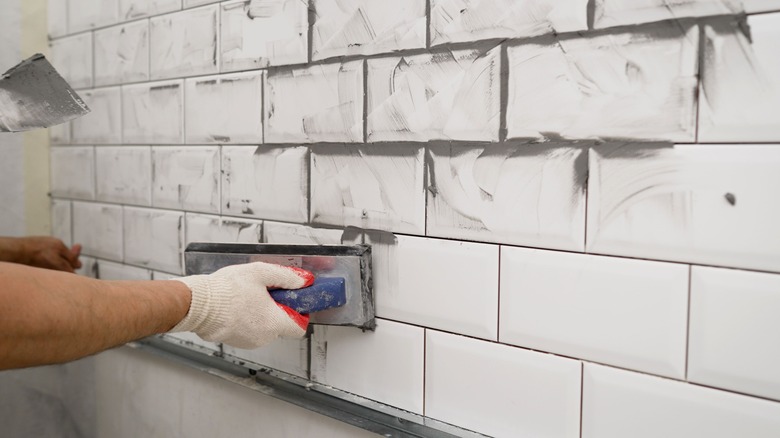Is Black Grout A Good Idea?
Trying out-of-the-box designs within your home can yield amazing results, and one trend that draws the eye while adding a touch of drama to any space is black grout. This style might not be for everyone, but it can certainly elevate any area that features grout, especially your bathrooms, and can really enhance your tile selection. As with any distinct or unique trend, there are pros and cons to using black grout.
If you're looking for a wow factor when decorating your bathroom, black grout can provide that without overdoing it. Sticking with light, neutral shades like white, beige, soft grays, and creams will make the grout pop while still keeping the overall effect chic and stylish.
Pros and cons of black grout
One big pro to using black grout is that it can also diminish the appearance of dirt and grime. Since standard grout is usually white, it can show stains, buildup, and dirt more easily, whereas black will have the opposite effect. One thing to keep in mind is soap and water stains, which can appear white and will show up more easily on black grout, so cleaning it regularly with water and vinegar can keep your bathroom looking fresh and tidy. If your bathroom tends to accumulate moisture more than most, this option helps conceal discoloration, too.
If you're not ready to go all the way black with your grout, you can also swap black for dark gray or charcoal, which still provides a touch of drama without feeling as overpowering. They also combine well with a variety of tile shades, making it easier to play with colors, patterns, and designs.
How to make black grout work for your space
There are drawbacks to implementing black grout in your home, with resale being one of the main arguments. If you plan to sell your home down the line, some buyers may be turned off by the dark grout color. Black grout can also fade, so be prepared to reapply it and add the right grout sealant to protect it. All in all, you might want to consider hiring a professional to get the job done.
When deciding if this aesthetic is right for you, consider the type of tile you plan to use. Pairing porcelain or ceramic tiles gives the best results, since the light-and-dark contrast makes for the most striking effect. Monochromatic themes do well with black grout, as the two complement each other nicely. While black grout can withstand moisture in the air, you should avoid it in areas that come into direct contact with a lot of water, since the color is prone to fading.


